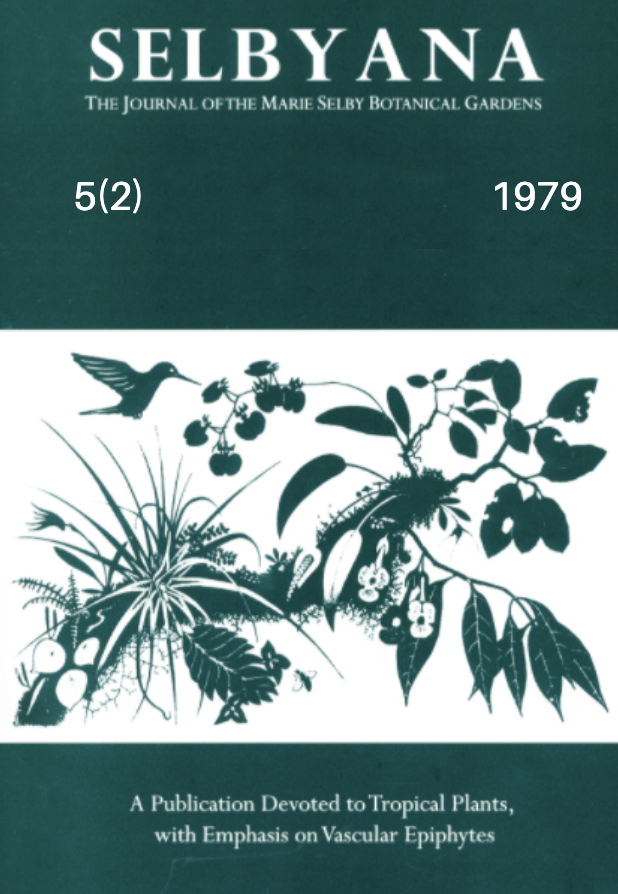Abstract
The genus Pterobesleria Morton, published in 1953, contains two= species, both native to Venezuela. Besleria L. is a genus of over 200 species distributed throughout the neotropics. Conrad Morton's revision of this largest taxon among the American Gesneriaceae, published in 1939, is still a very useful reference, for Besleria is a wen-defined and natural entity. There are very few species in this group with "aberrant" features or special developments, such as the reduced nectary in Besleria comosa Morton, or the cone-shaped berry fruit in B. labiosa Hanstein.
Open Access and Copyright Notice
Selbyana is committed to real and immediate open access for academic work. All of Selbyana's articles and reviews are free to access immediately upon publication. There are no author charges (APCs) prior to publication, and no charges for readers to download articles and reviews for their own scholarly use. To facilitate this, Selbyana depends on the financial backing of the Marie Selby Botanical Gardens, the hard work and dedication of its editorial team and advisory board, and the continuing support of its network of peer reviewers and partner institutions.
Authors are free to choose which open license they would like to use for their work. Our default license is the Creative Commons Attribution-NonCommercial 4.0 (CC BY-NC 4.0). While Selbyana’s articles can be copied by anyone for noncommercial purposes if proper credit is given, all materials are published under an open-access license with authors retaining full and permanent ownership of their work. The author grants Selbyana a perpetual, non-exclusive right to publish the work and to include it in other aggregations and indexes to achieve broader impact and visibility.
Authors are responsible for and required to ascertain that they are in possession of image rights for any and all photographs, illustrations, and figures included in their work or to obtain publication or reproduction rights from the rights holders. Contents of the journal will be registered with the Directory of Open Access Journals and similar repositories. Authors are encouraged to store their work elsewhere, for instance in institutional repositories or personal websites, including commercial sites such as academia.edu, to increase circulation (see The Effects of Open Access).
